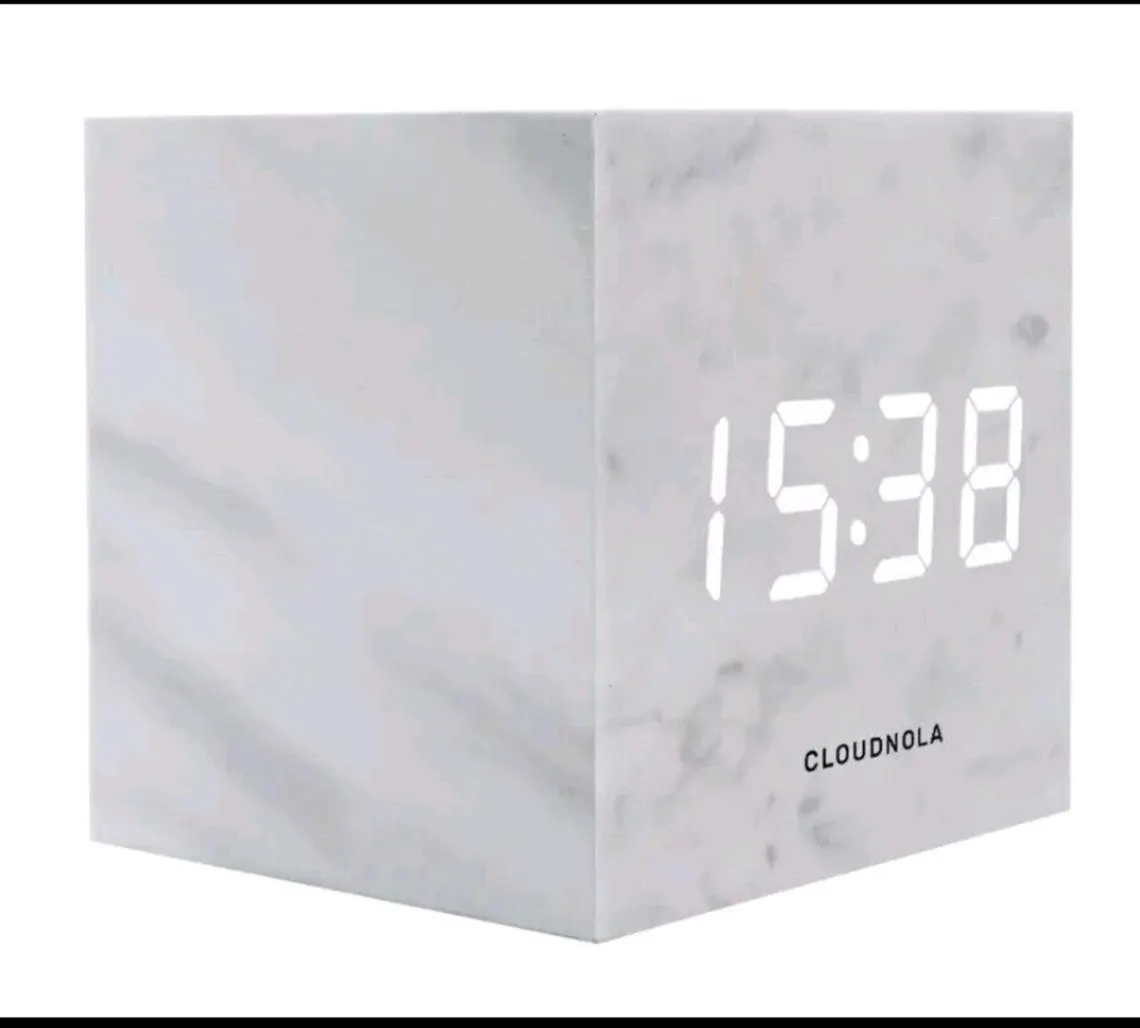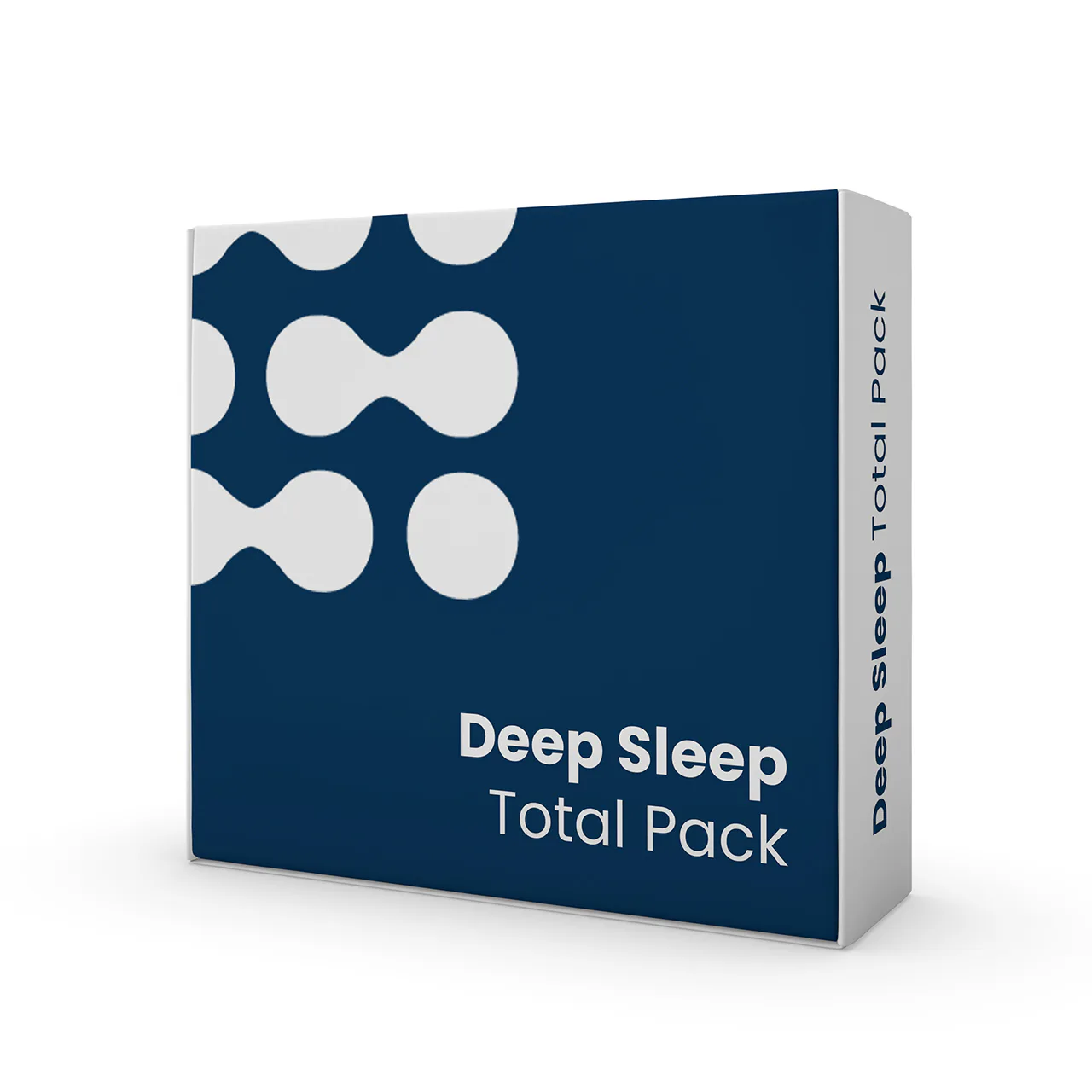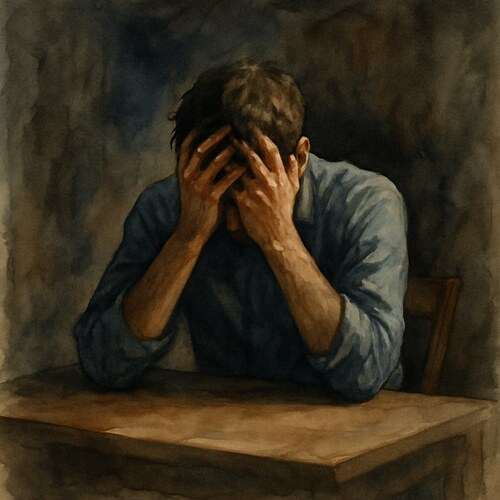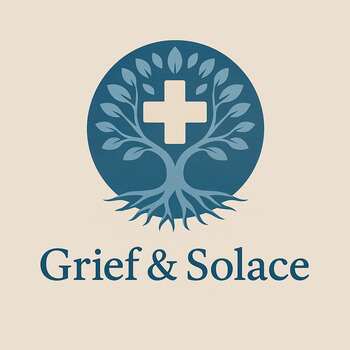Understanding Alzheimer’s: A Story of Love, Loss, and the Long Goodbye
Grief begins long before death with Alzheimer’s, through forgotten names, reversed roles, and the slow vanishing of the person you still love.
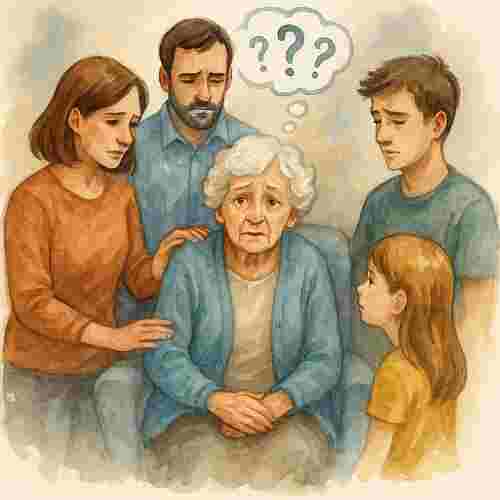
This post blends real grief with grounded knowledge. It isn’t clinical. It isn’t distant. It’s meant to sit beside you—not above you. The story you’ll read is meant to reflect what so many feel when living through or witnessing this condition: confusion, exhaustion, and quiet forms of courage.
If what you read feels familiar, please speak with your doctor. Your pain deserves more than silence.
I Used to Call Her My Compass
She remembered everyone’s birthday. She knew which neighbor had lost a spouse and which one was quietly going broke. She’d packed shoeboxes for hurricane victims, she’d never met and once sewed a quilt for a woman dying of breast cancer in a different church three towns over. That was my wife, always sharp, and always steady. The kind of constant that steadied everyone else.
🧠 Symptoms:
- Progressive memory loss disrupting daily life
- Difficulty recognizing familiar people or places
- Trouble managing finances, cooking, or driving
- Mood and personality changes: depression, aggression, paranoia
- Repetitive speech and misplaced items in odd locations
The first time she asked the same question twice, I laughed.
“Did we already get milk?”
“What time is the service again?”
It was harmless, It felt harmless, I’d laugh and answer: “Everyone forgets things”, I told myself. But the laugh didn’t last…
Soon, It turned into forgetting names…Then people, Then places.
She once got up in the middle of the night, turned on every light in the house, and started yelling, because she didn’t know where she was…In our own house; The one we lived in for 32 years.
She looked me straight in the eyes and screamed at me to get out, I guess she thought I was a stranger, A threat, and she slapped me.
The next morning, she sobbed into her coffee.
“I don’t know what’s wrong with me,” she whispered.
And neither did I… Not really.
Complications:
- Inability to describe pain or symptoms clearly
- Difficulties swallowing, moving, or managing bodily functions
- Higher risk of pneumonia, infections, falls, fractures, and malnutrition
- Emotional strain on family and caregivers
Causes:
- Abnormal accumulation of proteins: beta-amyloid plaques and tau tangles
- Disrupted neuron communication, cell death, and brain shrinkage
- Usually triggered by a mix of genetics, lifestyle, and aging
- Early-onset cases (<1%) due to inherited genetic mutations
We had a diagnosis, we had a name, but a name isn’t comfort, it’s damn sure not a cure. What it is though is a locked door with a brass plate that says “Alzheimer’s,” and no key in the world will open it.
I stayed, of course, I stayed; Because love doesn’t leave…But God, sometimes it begs for a break.
There were nights I locked myself in the bathroom just to cry, to scream into a towel so she wouldn’t hear; because you can’t yell at someone who’s not choosing this; but you can feel like you’re being erased by it.
Days, weeks, and months became stressful, and I wouldn’t leave unless someone came to sit with her.
I locked the knives away, I bought childproof doorknobs from the baby aisle, I installed alarms, and I didn’t sleep unless she did.
Her body stayed…Her voice…sometimes.
But the woman I married, the one who sent handwritten letters to our nieces every Easter, vanished like a Polaroid fading in reverse.
And I was left holding her outline, being told I should feel lucky she was “still here.”
But she wasn’t…
Not really…
And one day, I won’t be either, and I pray, honest to God, I’d go first…
Because if I ever forget her, I won’t have the strength to survive it.
Memory doesn’t die all at once. It drips. It slips. Until only love is left…and even that forgets its name.
Prevention:
- No cure or guaranteed prevention, but:
- Regular exercise and Mediterranean-style diet
- Managing blood pressure, cholesterol, and diabetes
- Avoiding smoking and excess alcohol
- Social and intellectual engagement throughout life
- Using hearing aids and addressing vision loss
Risk Factors:
- Age: strongest known factor
- Family history: especially first-degree relatives
- APOE-e4 gene: significantly increases risk
- Down syndrome, brain injuries, or air pollution exposure
- Poor sleep, alcohol misuse, smoking, obesity, and unmanaged diabetes
- Low education level and lack of social/mental stimulation
📘 Diagnosis & Treatment
Alzheimer’s disease is diagnosed through a combination of medical history, cognitive testing, brain imaging, and, more recently, biomarker detection.
Doctors begin with neurological exams and mental status evaluations. They may conduct MRI or CT scans to rule out other conditions and examine brain shrinkage. PET scans can show abnormal amyloid or tau deposits. Blood and cerebrospinal fluid tests can also reveal early biological signs.
Diagnosis often involves a team: primary physicians, neurologists, and sometimes neuropsychologists. Genetic testing is rare but may be considered in early-onset cases with family history.
Treatment has two arms:
Symptom Management and
Disease Progression Control.
Medicines for Symptom Relief:
- Cholinesterase inhibitors (e.g., donepezil, galantamine): modest improvement in memory and behavior
- Memantine: helps with moderate-to-severe cases
Disease-Modifying Treatments:
- Lecanemab (Leqembi) and Donanemab (Kisunla): IV infusions targeting amyloid buildup; can slow decline in early-stage patients. These require MRI monitoring due to rare risks of brain swelling or bleeding.
Supportive care plays a central role:
- Environment adaptation (labels, routines, safety measures)
- Nutrition and hydration
- Regular physical activity (walking, chair exercises)
- Engagement in social or creative tasks (music, crafts, storytelling)
Alternative supplements (e.g., Vitamin E, Omega-3, Curcumin) lack consistent evidence and may interfere with medications.
Caregiver support is vital: professional counseling, support groups, adult day centers, and respite care can ease the burden. Education and emotional preparation are essential for those supporting loved ones through this condition.
I know this is heavy, and I understand that the road ahead may feel like a tangle of loss and unanswered questions. But please hear this: you are not broken because you are hurting; you are not weak because you are afraid. You are living through something real, and survival itself is a kind of grace. You are allowed to struggle, you are allowed to hope, and you are allowed to not have all the answers today. Whatever comes next, you do not face it empty-handed; you carry every moment of love that shaped you, and that will always be enough to keep going.
🎀 Gifts to help With Alzheimer’s
🏥 Everyday Comforts for Everyday Battles
Managing Alzheimer’s often means needing a little extra help.
Sometimes it’s about restoring dignity, ease, or simply getting through the day with less pain.
These carefully chosen tools aren’t just items; they’re small bridges back to living.
This section is about finding practical support, never shame.
Easy-Use Digital Memory Clock for Alzheimer’s Orientation Support
As Alzheimer’s progresses, time can slip in and out of focus—causing confusion, anxiety, and disrupted routines. This high-contrast memory clock gently restores order by clearly displaying the full day, date, and time in bold, easy-to-read text. No abbreviations. No guesswork. Just reassurance in one glance. Ideal for bedrooms, kitchens, or caregiving spaces, it’s a small but powerful tool in keeping loved ones grounded.
🌿 Paths to Healing Beyond the Map
Sometimes traditional medicine isn’t enough.
If you’re exploring gentle, alternative options to help with Alzheimer’s.
you might find comfort in plant-based compounds like **CBD or CBG**.
*This section is not medical advice—just a door left open.*
Deep Sleep Total Pack – Calm the Nighttime Storms of Alzheimer’s
As evening falls, many living with Alzheimer’s experience increased confusion, fear, and agitation—known as sundowning. The Deep Sleep Total Pack offers a gentle, non-habit-forming approach to help quiet the mind and ease into rest. Blending natural sleep aids like melatonin with calming botanicals and CBD, it provides a layer of support when night feels like the hardest time.
Need a Different Path Forward?
Every journey through grief looks different. Choose the next step that speaks to where you are now:
When You're Ready to Start Healing
Healing doesn’t mean forgetting.
It means finding small ways to carry your grief with strength and grace.
These are the stories, tools, and gentle steps to begin walking forward…at your own pace.
When You're Still in the Thick of It
Sometimes healing feels like a lie.
If you’re not ready to move on…if the pain still roars louder than the world wants to hear…this is the place where you’re allowed to feel it.
No sugarcoating. No pretending. Just truth.
When You're Holding on to Who’s Still Here
Grief reminds us to love louder.
If someone you love is still with you, this is your place to celebrate them, honor them, and create new memories while there’s still time.
Joy and sorrow can live side by side.

